Anyone who knows me knows that I am a huge fan of credit cards, especially when using them means racking up points to use on flights, hotels and more. But over the past decade of my own credit card use and frequent travel, I have come across a theme: people are scared of credit cards!
I have lost track of the number of conversations I’ve had with fellow travelers (including close friends) who want to get in on the miles/points game, but are totally confused about how credit cards can help them. I’ve talked with friends who reluctantly admitted that they don’t have a credit card to begin with… because they’re intimidated. I get it! I can hear my old internal dialogue now: What if I mess up and miss a payment? Won’t applying for a new card hurt my credit score? What even is my credit score? I’m too embarrassed to confront it. What if I spend money I don’t have? What if I overdraw? What if I don’t understand how to set things up? Ugh… it’s not even worth trying to understand…
But once I started learning about the benefits that come with using credit cards, I became a huge advocate for using them (responsibly, of course).
As a result of my credit cards, I have stayed in 5 star hotels in Europe and booked spontaneous flights using my points, plus I pretty much always have lounge access in airports, and I don’t have to worry about purchasing that extra car rental insurance. And those are just some of the benefits. Pull up a chair–– if you are not currently taking advantage of credit card benefits, it’s time.
FIRST THINGS FIRST: WHAT’S A CREDIT CARD?
Think of a credit card as a short-term loan. When you make a purchase with a debit card, money comes out of your bank account directly. By contrast, with a credit card, money comes out of your credit card institution’s account. You then need to pay that amount to them at the end of the billing cycle, which is typically 30 days. If you pay the entire balance on time, you will not pay any interest.
I hear that the main reason people don’t want a credit card is that they feel they can’t trust themselves to not overspend. In my opinion, you need to make a deal with yourself that you will be responsible and aware of how much money you are spending, and that you will not spend money you don’t have. Decide that you are going to pay your full balance on time every month.
WHY SHOULD YOU HAVE A CREDIT CARD?
- You need to start building your credit. When you eventually want to buy something that requires a loan (maybe a house or a car), your credit score (FICO score) matters, and will give you a more favorable rate if your score is good. Your FICO score is determined by a combination of things including the length of your credit history, your payment history, and the amount you currently owe. The best time to start building your score is NOW!
- Points, airline miles and cash-back rewards come in super handy for frequent travelers. Many cards have excellent introductory bonuses that give you a solid amount of points right away (provided you meet the requirements).
- Many cards offer great insurance for things like rental cars, travel cancellations, delays, and other emergencies that might occur on a trip.
- Perks don’t end at points and miles, but can extend to things like lounge access and reimbursed Global Entry fees.
- Improved security compared to a debit card. Credit card companies monitor your accounts closely for fraud, and inauthentic charges can be disputed easily. By contrast, if your bank account or debit card gets hacked and money is stolen, it is much more difficult to recover the stolen funds.
- Emergencies. It’s just smart to carry a credit card for an emergency. There are bound to be situations that are out of your control, and knowing you have a credit card to use can help.
- If you are spending the money anyway, you might as well use a credit card and get all these benefits. You’re leaving money on the table by not using one!
WHAT CREDIT CARD IS RIGHT FOR YOU?
Note: This list doesn’t contain a comprehensive list of credit cards or their offers, but is a selection of handpicked cards that stand out to me as smart choices for travelers and people looking to maximize credit card perks.
BEST FOR PAYING DOWN DEBT
This is for folks who currently have credit card debt. If you are currently in credit card debt and have average or better credit and have not applied for a new credit card in the past three months, you should consider transferring your balance to a card that is offering an intro 0% APR period on balance transfers. THIS CAN SAVE YOU A TON OF MONEY! Check to see if you are eligible for a balance transfer on one of these cards. Then, divvy up the amount of debt you have over the 0% APR period into installments that you will pay automatically. I don’t recommend using this card for any other purpose than paying down your debt, unless you can be 100% sure to pay off whatever you are spending in that month on time and in full. None of these cards have an annual fee.

- Bank Americard
This card is offering a 0% intro APR for 18 months, and a 0% fee on balance transfers made in the first 60 days. After the intro offer, there isn’t a whole lot else happening with this card, but in my opinion, this is the best credit card currently available for paying down debt.
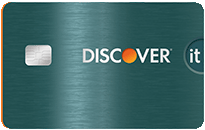
- Discover it Balance Transfer
This card is offering a 0% APR on balance transfers for 18 months. There is a 3% fee to transfer your balance, so be sure this is less than what you’re currently paying in interest. There are other rewards if you’d like to continue having a reason to use this card once you’ve paid off your debt–– 5% cash back on rotating categories and 1% cash back on everything else. There is also no foreign transaction fee, good if you travel.
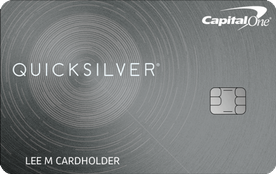
- Capital One Quicksilver Cash Rewards Credit Card
This card offers a 0% APR on balance transfers for 15 months, but charges a 3% balance transfer fee, so again, make sure this amounts to less than what you’re currently paying in interest. There’s a one-time cash bonus if you’d like to also use this card beyond paying down debt–– spend $500 in the first 3 months of opening and get $150 back. This card doesn’t do rotating cash back offers. Instead, you get 1.5% cash back on every purchase you make. No foreign transaction fee either.
BEST FOR NO ANNUAL FEE

- Capital One Quicksilver Cash Rewards Credit Card
It appears again! I’m including this one in this category too because it’s just a good all around card, especially if you’re still getting familiar with using credit cards, since the rewards are easy to understand.
Intro offer: Spend $500 in the first 3 months of opening and get $150 back
Best features: No foreign transaction fee, 1.5% cash back on every purchase.
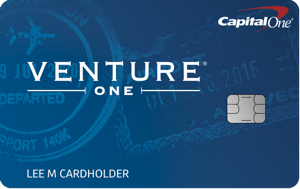
- Capital One VentureOne Rewards Credit Card
This is the card I recommend to my friends as their first credit card. The rewards are super easy to understand.
Intro offer: 20,000 miles when you spend $1,000 in the first 3 months
Best features: No foreign transaction fee, 1.25 miles per dollar on every purchase, miles don’t expire, use miles on a variety of travel partners, and get 10x miles on Hotels.com purchases (!!!)
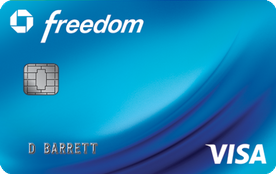
- Chase Freedom
This is a great free card that has rotating categories that earn you 5% cash back/5 points per dollar on up to $1,500 per category. Some of the purchase categories include gas stations, grocery stores, and internet/phone bills. Note that this card does charge a 3% foreign transaction fee, so don’t use it abroad.
Intro offer: 15,000 points when you spend $500 in the first three months (that said, the intro offer isn’t the best feature on this card)
Best features: Rotating bonus categories for 5% cash back.
BEST FOR FREQUENT TRAVELERS
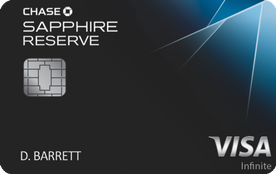
- Chase Sapphire Reserve
This is my top pick and my favorite card for personal use. Although the $450 annual fee may sound steep, you get a $300 travel credit, so I think of it more like $150/year. My favorite perks on this card are the 3x points on travel and dining and Priority Pass membership–– how I get lounge access (a value of $429 annually). I would venture to guess that this card is in the wallets of many savvy travelers you follow online, and for good reason.
Intro offer: 50,000 points after you spend $4,000 within the first 3 months of account opening
Best features: $300 travel credit and 3x points on travel purchases afterward, 3x points on dining, Priority Pass membership, get 50% more value from your points when redeemed through Chase Ultimate Rewards, application fee credit for Global Entry or TSA Pre✓, no foreign transaction fee.
Annual fee: $450
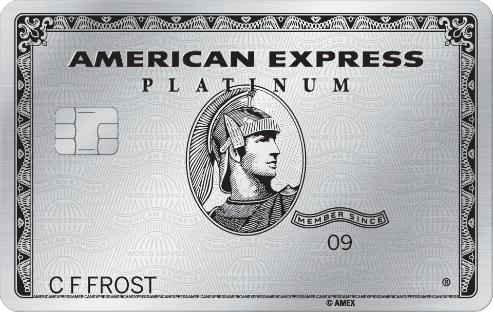
- The Platinum Card from American Express
A worthwhile competitor to the Chase Sapphire Reserve, the AMEX Platinum card has some excellent benefits for frequent travelers. The card offers an intro bonus of 60,000 bonus points after you spend $5,000 within the first three months. Though it has a high annual fee of $550, its $200 airline credit and $200 Uber credit make the fee more reasonable.
Intro offer: 60,000 points when you spend $5,000 within the first 3 months
Best Features: $200 airline credit, $200 Uber credit, superior purchase protection, Priority Pass and access to Delta Sky Clubs and AMEX Centurion Lounges, credit for Global Entry and TSA Pre✓ fees every 4 years, no foreign transaction fee, points transfer to 21 hotel and airline partners, complimentary Gold & Gold Elite status in the Hilton and Marriott programs.
Annual fee: $550
BEST FOR A GOOD ALL-AROUND CARD
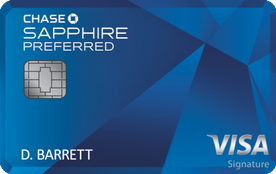
- Chase Sapphire Preferred
If you like the sound of the Chase Sapphire Reserve, but are nervous about the big annual fee, this is a good pick for you. You get 2x points on travel and dining, and your points are worth 25% more when you redeem them with Chase Ultimate Rewards. There are also ton of options when it comes to redeeming your points. If you are wanting to travel on points a lot in the future, this is an excellent choice for your first (or next) credit card. Here’s a great article by The Points Guy that breaks down the benefits of this card further.
Intro offer: 50,000 points when you spend $4,000 within the first 3 months
Best Features: 2x points on travel and dining, points worth 25% when redeemed through Chase Ultimate Rewards, no foreign transaction fee, good insurance coverage.
Annual fee: $95, waived the first year
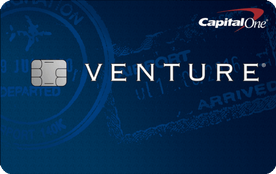
- Capital One Venture Rewards Credit Card
This is another good card for starting your points strategy. Not to be confused with the VentureOne card, the Capital One Venture card is a solid card with simple rewards. The 50,000 mile intro bonus is a good offer, and you will earn 2 miles per dollar on every purchase after that. Like the VentureOne, you can use their “purchase eraser” to simply “erase” any travel-related purchase using your points.
Intro offer: 50,000 miles after you spend $3,000 in the first 3 months
Best features: No foreign transaction fees, 2 miles per dollar on every purchase, 10x miles on Hotels.com, miles are easy to redeem, ability to transfer miles to 14 airline partners, Global Entry or TSA Pre✓ rebate.
Annual fee: $95, waived the first year
BEST FOR SMALL BUSINESSES
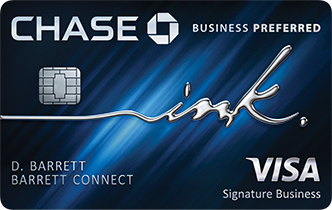
- Chase Ink Business Preferred Credit Card
This card currently has a great intro bonus, plus 3x points on broad categories like travel, dining, internet/phone, and advertising on social media sites, up to $150,000. This card also offers some great purchase protection including primary car rental insurance, travel accident insurance (up to $500,000), baggage insurance and trip delay/cancellation insurance. If you have another Chase credit card, you can pool your Ultimate Rewards points to enhance their value–– a feature I love that keeps me loyal to Chase. To me, this is the best first business credit card you can get right now (unless you can spend $50,000 the first year, then check out the Capital One Spark Miles for Business).
Intro offer: 80,000 points when you spend $5,000 in the first three months.
Best features: 3x points on travel, dining, internet, phone, cable, and advertising on social media sites, great insurance for car rentals and travel, points worth 25% more when redeemed through Chase Ultimate Rewards
Annual fee: $95
There are lots of other great small business credit cards out there, but this topic deserves more options than I’ll be providing here. Once again, The Points Guy delivers–– see their post here ranking the best business credit cards of 2019. If you are a freelancer, getting incorporated and separating your finances can help you feel much more organized about your expenses. I would recommend making a list of your biggest business expenses, and picking a credit card that has rewards related to those categories.
BEST AIRLINE & SERVICE SPECIFIC
If you fly one particular airline a lot, it might benefit you to get a credit card that is specific to them. Look up the options for the airline you fly. If you know that you would like to start a long-term relationship with an airline (oOOoOoh getting serious!), it might be beneficial for you to have their credit card. Note that Uber also has its own credit card now if you are a frequent Uber user. I wrote a post about it a while back–– you can see it here.
DO’S & DONT’S
- DO select credit cards that are a good fit for you, and have a good understanding of the benefits and fees (if applicable).
- DO pay your balance on time every month. I recommend setting up AutoPay immediately so that you don’t have to remember when it’s time to pay your bill.
- DO pay attention to special bonus categories and offers so you can take advantage of them!
- DO use your points, you earned them! Don’t be a hoarder. 😛
- DO keep an eye out for good intro bonuses on cards you don’t have yet.
- DO make yourself aware of Chase’s 5/24 rule for future reference, especially if you are applying for a Chase card.
- DON’T spend money you don’t have. C’mon. You are better than that!
- DON’T apply for lots of cards in a short time window, or it can affect your credit score. The general rule of thumb is to wait three months in between applications.
- DON’T pay interest fees. See my tips above on getting a card with a 0% APR intro period and transferring your balance to that.
HOW TO GET STARTED
It’s pretty easy to apply for a credit card, and if your score is above 600, you can sometimes be approved immediately.
- Get your annual credit report for free here. Your official credit score (FICO score), and/or other estimates, can be accessed for free from certain credit card issuers as part of your card benefits. There are other sites that offer estimates, but they are not official. Here’s the breakdown of your score:
- Payment history (35%)
- Credit utilization (30%)
- Length of credit history (15%)
- Types of accounts in use (10%)
- New credit (10%)
- Do your research to land on the card that is right for you. Set aside some time to shop around, but don’t overthink it.
- APPLY
- As soon as your card arrives, set up AutoPay. Don’t miss a payment or leave it to your memory–– you WILL forget (speaking from experience)!
- Make sure you meet the minimum spending amount to get your intro bonus.
- Maximize your purchases by staying up to date with specific reward categories.
IN SUMMARY…
Credit cards should be an essential part of every traveler’s wallet. Ideally, your credit cards will work for you by providing you with excellent purchase protection, insurance against lost baggage and delays, perks like airport lounges, and points that you can redeem for future travel and accommodation. Though this list contains some of what I consider to be the best offers currently available, it’s not representative of everything that is out there, so you should do your own research too and make sure you’re getting the cards that are right for you. For more detailed and long-term credit card advice, I can’t recommend a better resource than The Points Guy, which I promise I will now shut up about (for now). If you are in the market for a high-end credit card, there’s a good list here. 🙂
Given what you now know about credit cards, how do you feel about them? Are you excited? Even more confused? Let me know in the comments!
FYI, this blog contains affiliate links. That means that if you click through and make a purchase, I might earn a small commission at no cost to you. On this blog post, some of the above links are referral links, meaning that if you apply for a card and get approved, I might get points. Everything I share on my blog is intentional, and that goes for anything I recommend to you guys as well. Thank you for using my links–– it helps support this blog!
Please ignore this text box - Recoleta Font
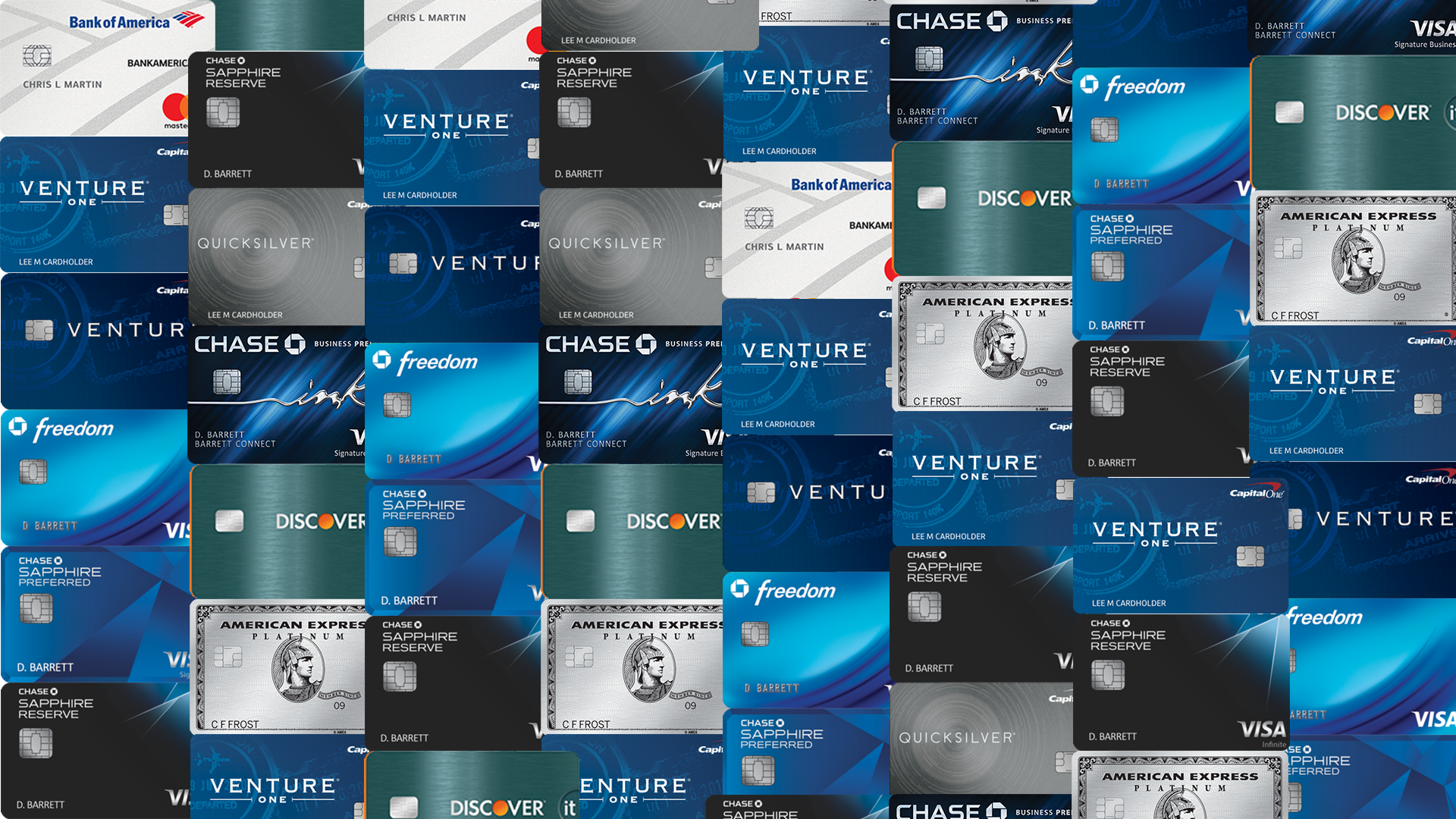






+ show Comments
- Hide Comments
add a comment